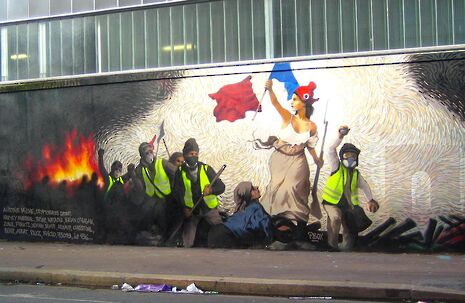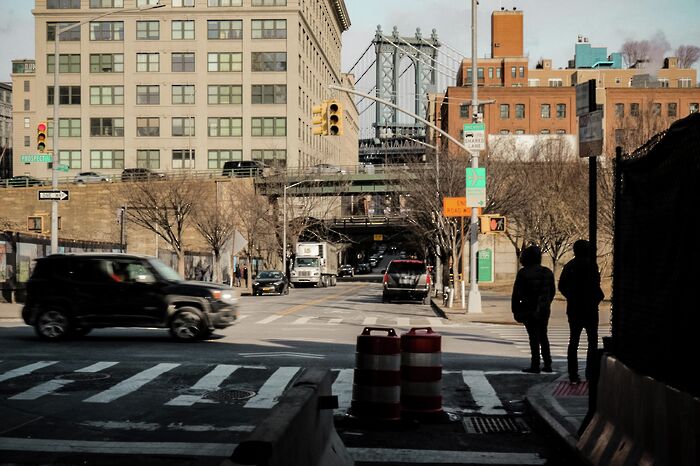Stories from the Margins
Switching this week to a fragmentary non-fiction work, Rachel Weatherley unpacks the politicised writing of Édouard Louis in Who Killed My Father

Content note: this article contains discussions of alcoholism, violence, emotional abuse, and homophobia
“
As long as a large proportion of books are addressed only to the privileged elite, as long as literature continues to assault people like my mother or the taxi driver, literature can die. I will watch its death with indifference.” The speaker is Édouard Louis, a French writer and Sociologist, in a 2017 interview. He had just released his first book, the semi-autobiographical The End of Eddy, a deeply personal rumination on poverty and the pressures of a specific type of classed masculinity. Who Killed My Father, a three part memoir-essay, is just as incendiary – born from the anger that the brutality and humiliation of existence on the margins of society instils.
"This violence is manifest on the bodies of those it brutalises"
Painful and often traumatic vignettes from Édouard’s own childhood in the village of Hallencourt, Northern France, are interspersed with fragments of his father’s life before him. We learn about the troubled relationship Louis’ father had with his own (a violent alcoholic), how he drifted through the French education system, dropping out of the lycée at 15 to move South for a few years, ‘stealing mopeds and drinking all he could’, before returning to his home to work in a factory. We also learn of the habitual violence, emotional abuse, and homophobic shaming Louis endured, in a fractious household where his mother and siblings could be just as volatile as his domineering father.

Louis’ accusatory finger does not rest on his father: these memories, distilled into words, provide a vehicle with which to launch a scathing diatribe against the ruling class. If the first part of the book reads as a tentative unpacking of his youth, there is no doubt that the second half of the book is a damning indictment of the systems that brutalise and humiliate, full-bodied in its anger and emotional directness. Books like this are as politically mobilising as they are poignant.
Louis’ father is now 50. He has trouble walking, and also relies on a machine to keep his heart working at night. He was injured at work when he was 35, but it is unlikely his failing health would be as severe and debilitating if Sarközy’s government, in power at the time, had paid a welfare stipend that many working-class families rely on in times of ill health. Instead, Louis’ father had to continue searching for work and his health deteriorated rapidly. Here we see cruel injustices of right-wing government policy laid bare.
"Here we see cruel injustices of right-wing government policy laid bare"
The genealogy mapped by Louis illustrates how violent beliefs and behaviours are reproduced cross-generationally. What is particularly pronounced is the sense of entrapment that pervades those who are socially isolated, disenfranchised and economically deprived. ‘They had gone, without any transition, from childhood to exhaustion and getting ready to die, without ever having been granted those few years of oblivion towards the world and reality that others call youth’, Louis says of his forebears. These are people belonging to a milieu of extreme poverty, often faceless and nameless in TV, films, books, mere statistics in the news. The personal revelations make it all the more tangible and real – this violence is manifest on the bodies of those it brutalises.
Rising to greater and greater rhetorical heights, Louis writes with no holds barred in respect to naming and shaming the governments of Chirac, Sarközy, Hollande and Macron, and others responsible for implementing the policies that have wreaked such destruction in his own family and the lives of many other members of the French working class. Louis’ nihilism with regard to the political system may be dispiriting, but who can blame him:
‘This is something I realised when I went to live in Paris, far away from you: the ruling class may complain about a left-wing government, they may complain about a right-wing government, but no government ever ruins their digestion, no government ever breaks their backs, no government ever inspires a trip to the beach. Politics never changes their lives, at least not much.'
 News / Hundreds of Cambridge academics demand vote on fate of vet course20 February 2026
News / Hundreds of Cambridge academics demand vote on fate of vet course20 February 2026 News / University Council rescinds University Centre membership20 February 2026
News / University Council rescinds University Centre membership20 February 2026 News / Judge Business School advisor resigns over Epstein and Andrew links18 February 2026
News / Judge Business School advisor resigns over Epstein and Andrew links18 February 2026 News / Petition demands University reverse decision on vegan menu20 February 2026
News / Petition demands University reverse decision on vegan menu20 February 2026 News / Caius students fail to pass Pride flag proposal20 February 2026
News / Caius students fail to pass Pride flag proposal20 February 2026










